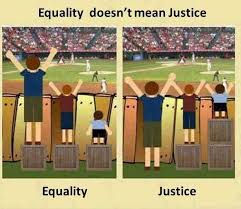I subscribe to a newsletter online, it might actually be helpful to some people–it usually is for me: it’s called Medical News Today, and covers what is new in many medical fields. I’m particularly interested in what’s going on in depression research and some of the other medical areas, and while I’m supposed to be keeping away from the news, there’s usually nothing upsetting in it to me. Until today. An article published by Drs. Wiltermuth and Cohen, titled, “I’d Only Let You Down’: Guilt Proneness and the Avoidance of Harmful Interdependence.” Now, from the title it doesn’t actually sound so bad, it wasn’t until I read the abstract that I got upset and sought out more information. This is from USC’s business site:
USC Marshall Research has Implications for Team Building in the Workplace
December 23, 2014 • by News at Marshall
Some people hate to disappoint—and you should definitely get them on your team. It turns out individuals who are highly prone to feel guilty for disappointing their co-workers are among the most ethical and hard-working partners. However, new research suggests that these highly guilt-prone people may be the most reticent to enter into partnerships.
Scott S. Wiltermuth, assistant professor of management and organization at the USC Marshall School of Business, along with Taya R. Cohen at Carnegie Mellon University, explains how guilt proneness may prevent people from forming partnerships in “‘I’d Only Let You Down’: Guilt Proneness and the Avoidance of Harmful Interdependence,” which will be published in the Journal of Personality and Social Psychology. Understanding this phenomenon, managers can make the best decisions about team building and increase productivity.
The Guilty are Good Workers
Highly guilt-prone people (i.e., people with a strong dispositional tendency to feel guilty for wrongdoings) make valuable work partners because a concern about letting others down drives them to complete at least their fair share of the work.
“Because of this concern for the impact of their actions on others’ welfare, highly guilt-prone people often outwork their less guilt-prone colleagues, demonstrate more effective leadership and contribute more to the success of the teams and partnerships in which they are involved,” Wiltermuth explained.
However, these same behavioral tendencies may, in some instances, also lead these individuals to be reticent to enter into certain partnerships at work.
In five studies, Wiltermuth and Cohen demonstrated that highly guilt-prone people may avoid forming interdependent partnerships with people they perceive to be more competent than themselves, because benefitting a partner less than the partner benefits them could trigger feelings of guilt.
“It may come as a surprise,” Wiltermuth said, “but our findings demonstrate that people who lack competence may not always seek out competence in others when choosing work partners.”
In studies where Wiltermuth asked participants with whom they would like to partner to complete a task, given information about their potential partners’ expertise in that area, highly guilt-prone people with less knowledge or skill in that area were less likely to choose the most competent partner. They were afraid to contribute less to the task than their partner and, thus, let them down.
But They Won’t Ask for a Bonus
In the studies, highly guilt-prone people were also more likely than others to opt to be paid on their performance alone and to opt to be paid based on the average of their performance and that of others whose competence was more similar to their own.
“Guilt proneness reduces the incidence of unethical behavior,” Wiltermuth said. “Highly guilt-prone people are conscientious. They are less likely to free-ride on others’ expertise, and they will sacrifice financial gain out of concern about how their actions would influence others’ welfare.”
Those in supervisory roles can use this research to create the most effective dynamics in the workplace and increase productivity.
“Managers could try to ensure that highly guilt-prone people are creating the partnerships and perhaps even assuming leadership roles on teams,” Wiltermuth said, “despite highly guilt-prone people’s fear that by accepting these leadership positions they might be putting themselves into position to let their teammates down.”
http://www.marshall.usc.edu/news/releases/2014/guilt-complex
Above link goes to USC’s Marshall Business school.
Now, part of me sees the advantages in this, the other 95% screams out that it’s taking advantage of the guilt complex, which isn’t a good thing, as is something a lot of people with depression suffer from. I was so upset at the thought of people being used for something that makes them so easily manipulated by others that I simply started to cry. Granted, I’m going through dosage changes of my current med. I’m wary of businesses ability to use things like this in ethical and moral ways, and since I don’t think it’s ethical or moral to start with… I know businesses use personality traits already. In our society, which is so Corporate centered, the person at the top gets the money (the CEO), the heading, “But They Won’t Ask for a Bonus,” was just another kick in the stomach. So people shouldn’t get paid what they’re worth. It’s like Scrooge. This is a particularly Capitalistic p.o.v., where the concern is for how much the people at the top make. Look at where the US is compared to other countries financially. Last. Along with other English-Speaking countries that had followed the same model; eliminating apprenticeships, not caring so much for the workers and caring more for the shareholders and the CEO in terms of who benefits financially. The European model is different. Germany was at the top. They have apprenticeships. They are not as Capitalistic as we are. No, I don’t know a lot about business, only that they do things differently than we do, and the reason they have companies that have been around for a couple hundred years and are still at least all or partially family owned is that they are invested in the companies at a personal level. They are proud of them. Koh-I-Noor, who makes some of the coolest darn pencils ever, is celebrating their 222nd anniversary this year. They are Czechoslovakian. I’m noticing this a lot in art supplies from Europe. Faber-Castell has been around for a very long time, at least a hundred years, maybe longer. They did merge with another company. I don’t think they play the crazy take-over games there–I would have to ask my friend who lives in Germany, but I don’t think he pays a lot of attention to business either. He tries, like me, to support indie businesses, of which I’m a supporter as well. And which I’m sure doesn’t use guilt in their employees as a factor for putting together teams.
I have calmed down a lot, but I am appalled that this is considered psychology, and is being published as such, and as seemingly acceptable practice. It’s published in the Journal of Personality and Social Psychology. I wrote a comment to the “article” on MNT, definitely influenced by the fact that I had a terrible experience at my last job and my current state of depression, which is accompanied by some feelings of guilt as well:
My opinion on this research is that using people because of their tendency to feel guilty about letting others down, “but they won’t ask for a bonus” is sick and unethical, and part of the reason that I hate the structure of business culture in America and other places that use tactics like this. At others’ expense to get ahead, and make more money for themselves. And this is Psychology? I subscribe to this, MNT, because I have MDD and have been suffering from a long episode of severe depression for over a year. I want to see what is being done to help other people like me who are running out of options, and also what is being doing to help with the other health issues I have, chronic kidney disease, migraines, etc. Not how our psychological problems can be used against us for profit. This is so disheartening. I recently had a breakdown because of stress and a med change that jumped too quickly for my system. If any of you corporate types read this and think this article is a good idea, consider the following; the Abilify that keeps some of your employees that may have guilt issues coming to work costs approximately $1,100 out of pocket, and some insurance companies only cover enough so they “only” have to pay around $431. That’s per month. That’s just one drug of many. Some of us have tried all the lower level, first line of defense against depression drugs, and they don’t work, so we have to up the ante. I’m very happy knowing I’m a long term guinea pig for Merck, when they don’t even know the dosages yet for their latest foray (that I’m aware of) into the anti-depressant market, but when you’re in a battle against depression, and you do happen to have a lot of guilt, you don’t have a lot of choice. It’s so nice to know that I’m a good candidate to help people, not because I’m altruistic, which I am, but because I also feel guilty for a lot of things which aren’t even my fault. Thank you for your support in my healing process by using me or people like me for your own ends. I’m not equating that everyone with guilt issues has depression, but often they do go hand in hand. For you to get ahead and build your little successful teams, how much are you putting out for your employees’ health insurance? What do you really know about your employees? I am so disgusted by this–you can just say that this is some troll, someone raving because of their “mental illness” that they would rather not see the “mentally ill” side of. But this is the truth, and sometimes is takes a mentally ill person to point it out in a way that you can see it for what it really is; not a good business decision, but an unethical money-grubbing ploy.
I hate the fact that I get melodramatic when I’m upset, but I have issues with people so isolated from real life, either because of socioeconomic reasons or Ivory Tower reasons (I considered going on to get my Ph.D in English Lit and teaching, but that fact, the isolation from reality, is one of the reasons I didn’t), that their grand “ideas” for improving business, despite how good they sound in their bios and how impressive their educational backgrounds, and despite the fact they are writing about psychology, they seem to know nothing about the morality of dealing with people empathetically, which in my mind is the most important aspect of treating people with and earning their respect. That’s how you get them to work their best for you. Acknowledge them as human beings, give them a living wage, good health insurance, days off without question, flexibility with their schedules if they need it; acknowledge that life is messy and it doesn’t just fit into a little box because the office manager wants it to. They may have sacrificed their life, but the people who work for them don’t have to. Genuine kindness and understanding, knowing the people who work for you, are what win their loyalty. Treating them with dignity. Do we really need to resort to using their guilt against them? Just because it’s easier than actually doing any of the aforementioned? Big business is killing itself. It merges and takes over and bloats itself like a giant amoeba, until, eventually, will it just collapse on itself? Because an amoeba is an ever changing thing, with no strong foundation, and without that foundation, in this case, the workers, the companies are only as strong as their weakest link. And when they resort to using guilt because it gets more done for less money from them, the word pathetic isn’t adequate. And if that’s what the psychological research is telling them to do? The psychological research from people who pride themselves on their interest in moral and ethical behavior in the workplace, what is the world coming to?
There are a couple of Robin Williams quotes I’ve been wanting to put somewhere, and I’ll probably make them email signatures at some point, but for now here they are, and feel free to use them as your email signatures if they touch you. They sort of have to do with the topic, kind of, but the first, I think, more with perserverence, and the second, a little how I started to feel at work, which was a sign I was in the wrong place, and if it weren’t for the financial issues, I should have left before a lot of what happened did.
“No matter what people tell you, words and ideas can change the world.”
–Robin Williams
“I used to think that the worst thing in life was to end up alone. It’s not. The worst thing in life is to end up with people who make you feel alone.”
–Robin Williams











You must be logged in to post a comment.